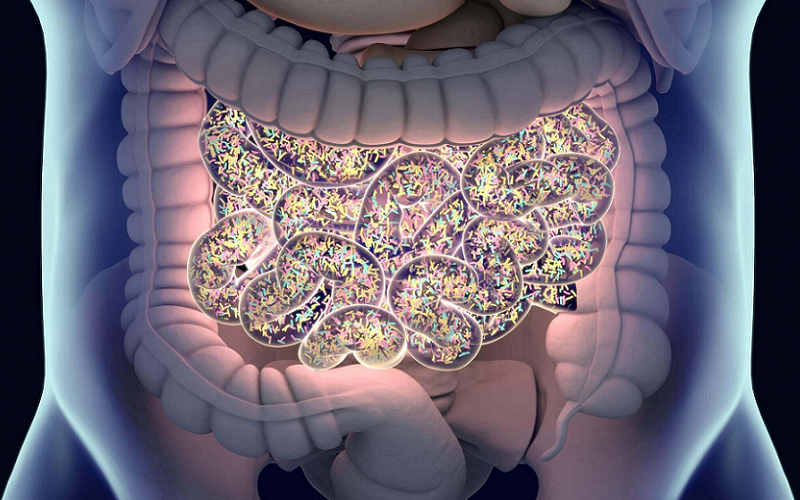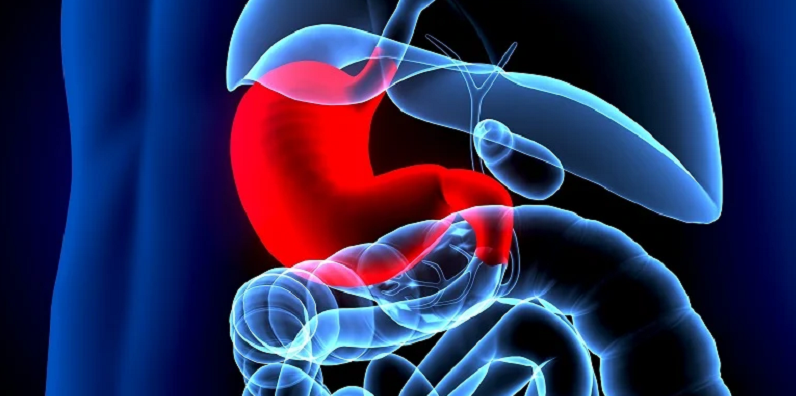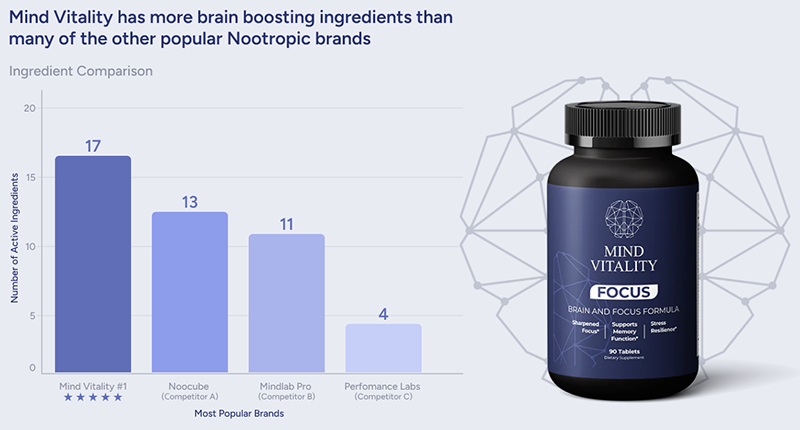
In the intricate world of human physiology, hormones play pivotal roles, orchestrating a myriad of bodily functions with remarkable precision. While some hormones like insulin and adrenaline are household names, there are unsung heroes in this complex biochemical symphony. Among these is Motilin, a hormone integral to our digestive health and hunger regulation, yet it remains largely under the radar in popular health discourse. Often dubbed the ‘hunger hormone,’ you’ve likely never heard of it. Here we look into its discovery, understand its critical role in hunger and digestion, and explore its surprising impacts on our metabolic and psychological well-being.
Contents
What Is Motilin?
In the realm of endocrinology, hormones are often celebrated for their profound impact on our body’s functioning. One such hormone, playing a crucial yet understated role, is Motilin.
Definition and Basic Function of Motilin
Motilin is a peptide hormone, primarily synthesized and secreted by the M cells in the small intestine’s mucosal lining. Composed of 22 amino acid residues, it has a distinct molecular structure that facilitates its unique role in gastrointestinal physiology. Its primary function is regulating the fasting motor pattern of the gastrointestinal tract, known as the migrating motor complex (MMC).
Motilin operates in cycles, typically released every 1.5 to 2 hours, particularly when the stomach and small intestine are empty. Its release triggers a wave of smooth muscle contractions in the upper gastrointestinal tract, aiding in the movement of undigested food and maintaining a healthy gut environment.
Historical Discovery and Research Background on Motilin
The journey to discovering Motilin began in the early 1970s. It was first isolated and named by a group of scientists led by J.C. Brown in 1973. The name ‘Motilin’ is derived from its ability to stimulate motility in the gastrointestinal tract. Initial research primarily focused on its role in gut motility, but over the years, studies have expanded to understand its broader impact on hunger signals and metabolic processes.
Despite its crucial role, Motilin has not gained as much attention in mainstream science and medicine as some other hormones, partly due to the complexity of its functions and the intricacies involved in its study.
Comparison of Motilin with Other Well-Known Hormones (e.g., Ghrelin)
While Motilin is often compared to Ghrelin, another hormone known to stimulate appetite, there are significant differences between the two. Ghrelin, produced in the stomach, directly signals the brain to induce feelings of hunger. It is often at its highest levels before a meal and decreases after eating.
In contrast, Motilin’s role is more mechanically oriented, primarily regulating the digestive process rather than directly influencing hunger signals. Understanding these distinctions is crucial for appreciating the unique role Motilin plays in our body’s complex hormonal orchestra [1].

The Role of Motilin in Hunger and Digestion
While not as well-known as some other hormones, Motilin plays a critical role in the regulation of hunger and digestion. Here we explore how Motilin orchestrates its functions in the gastrointestinal system, highlighting its unique contribution to our digestive health.
Motilin’s Mechanism of Action in Stimulating Appetite
Motilin’s role in stimulating appetite is more indirect compared to hormones like Ghrelin. It is released in response to an empty stomach, especially during fasting states. This release is a part of a larger cycle known as the migrating motor complex (MMC), which occurs approximately every two hours between meals.
The presence of Motilin signals the digestive system to clear undigested remnants and prepares the gut for the next meal, indirectly inducing hunger. By cleaning and resetting the digestive tract, Motilin essentially primes the body for food intake, thereby influencing our appetite and eating patterns [2].
Motilin’s Role in the Migrating Motor Complex (MMC)
The Migrating Motor Complex is a crucial digestive process that occurs in a cyclical pattern during fasting periods. Motilin is a key hormone in initiating each phase of MMC. These phases include a period of quiescence (Phase I), followed by intermittent contractions (Phase II), and finally, a short period of intense, regular contractions (Phase III). Phase III is often termed the “housekeeper wave,” sweeping residual undigested matter through the gastrointestinal tract. By triggering these phases, Motilin helps maintain a healthy, functional digestive system, preventing bacterial overgrowth and facilitating nutrient absorption.
Interactions of Motilin with Other Digestive Hormones
The interaction of Motilin with other digestive hormones further underscores its importance. It works in concert with hormones like Gastrin, Secretin, and Cholecystokinin, which coordinate digestive processes such as acid secretion, bile release, and pancreatic enzyme production.
Interestingly, the activity of Motilin is modulated by nutrients and hormonal signals. For instance, the presence of lipids and carbohydrates in the small intestine can inhibit its release, showcasing a complex regulatory mechanism that balances the digestive process. Understanding these interactions is vital for appreciating the harmonious coordination in our digestive system, orchestrated in part by Motilin [3].
Motilin and Gastrointestinal Health
The role of Motilin extends beyond mere hunger regulation, playing a pivotal role in maintaining overall gastrointestinal health. Here we look into the specific functions and potential therapeutic applications of Motilin in the context of gastrointestinal wellness.
Importance of Motilin in Gastrointestinal Motility
Motilin’s primary role in gastrointestinal motility is indispensable. It stimulates smooth muscle contractions in the intestines, facilitating the movement of food and waste through the digestive system. This action is crucial for preventing stagnation and ensuring efficient digestion and nutrient absorption.
Motilin-induced motility is particularly important in the interdigestive phase, where it helps clear the gut of residual food and bacteria, thus reducing the risk of bacterial overgrowth and infections. This rhythmic cleansing process underscores the hormone’s essential role in maintaining a healthy gastrointestinal tract.
Implications of Motilin in Common Digestive Disorders
The dysregulation of Motilin secretion or action can have significant implications for digestive health. For instance, altered Motilin levels are associated with various gastrointestinal disorders, such as irritable bowel syndrome (IBS), gastroparesis, and small intestinal bacterial overgrowth (SIBO).
In conditions like gastroparesis, where gastric emptying is delayed, the role of Motilin becomes crucial. Understanding its functions and modulating its activity can offer new perspectives in managing these disorders, potentially leading to more effective treatments and improved patient outcomes.
Potential Therapeutic Uses of Motilin in Treating Gastrointestinal Issues
Given its central role in gut motility, Motilin or Motilin receptor agonists have been explored for therapeutic use. These agents can potentially be used to treat disorders characterized by reduced gastrointestinal motility. For example, in gastroparesis, enhancing Motilin activity might help accelerate gastric emptying, alleviating symptoms like nausea and bloating [4].
Additionally, understanding the hormone’s role could lead to novel approaches in managing conditions like IBS, where motility dysregulation is a key feature. Ongoing research in this area continues to uncover new possibilities for harnessing Motilin’s properties for therapeutic benefit in gastrointestinal health.

Motilin and Metabolism
Beyond its direct influence on the gastrointestinal tract, Motilin plays an intriguing role in the broader aspect of metabolism. Here we explore how this hormone impacts metabolic processes and its potential implications for weight management and obesity.
Impact of Motilin on Metabolic Processes
Motilin’s role in metabolism is an area of emerging interest. While it is primarily known for regulating gut motility, its influence extends to metabolic rates and energy utilization. The hormone’s release during fasting periods can indirectly affect how the body metabolizes fats and sugars.
By stimulating digestive motility, Motilin ensures that nutrients are efficiently processed and absorbed. This process is crucial for maintaining energy balance and can impact overall metabolic health. Additionally, its cyclical release pattern aligns with the body’s natural rhythms, suggesting a potential role in synchronizing metabolic processes with digestive patterns.
The Relationship Between Motilin, Obesity, and Weight Management
The relationship between Motilin and obesity is complex and multifaceted. On one hand, efficient gut motility facilitated by Motilin can aid in weight management by ensuring proper nutrient utilization and preventing issues like bloating and constipation. On the other hand, its role in hunger signaling can have implications for overeating and weight gain.
Understanding how Motilin levels vary in individuals with obesity compared to those with normal weight could offer new insights into obesity management and prevention. There is ongoing research exploring whether modulating Motilin activity can be a viable strategy in weight loss therapies or managing metabolic disorders.
Current Research and Future Directions of Motilin in Metabolism Studies
Current research into Motilin’s metabolic functions is expanding our understanding of this hormone’s role beyond the digestive system. Studies are investigating how Motilin interacts with other metabolic hormones and how these interactions might be leveraged for therapeutic purposes. There is also interest in understanding how lifestyle factors, such as diet and exercise, influence Motilin levels and activity. These research endeavors could pave the way for novel interventions in metabolic diseases, offering new hope for individuals struggling with metabolic imbalances and weight issues [5].
The Psychological Aspects of Motilin
The influence of Motilin extends into the psychological realm, particularly regarding hunger signals and eating behavior. Here we examine the intriguing interplay between Motilin and various psychological aspects, revealing the hormone’s impact on our mental well-being and potential implications in eating disorders.
Influence of Motilin on Hunger Signals and Eating Behavior
While Motilin’s primary role is in gastrointestinal motility, its indirect effect on hunger signals can significantly impact our eating behavior. The hormone’s release during fasting or an empty stomach signals the body’s readiness for food intake, which can trigger psychological hunger cues.
These cues are an integral part of our decision-making process regarding when and how much to eat. The complex interaction between Motilin-induced physiological signals and psychological hunger can influence eating patterns, potentially affecting overall calorie intake and dietary choices. Understanding this relationship is crucial for comprehending how hormonal fluctuations can impact eating behavior and appetite control.
Connection of Motilin with Mental Health and Eating Disorders
The relationship between Motilin and mental health, particularly in the context of eating disorders, is an area of growing research interest. Fluctuations in Motilin levels might contribute to the complex hormonal interplay observed in conditions like anorexia nervosa, bulimia, and binge eating disorder.
For example, altered Motilin levels could affect the regulation of hunger and satiety, potentially exacerbating symptoms of these disorders. Furthermore, the psychological stress associated with eating disorders might itself impact Motilin secretion, creating a feedback loop that complicates these conditions. Exploring these connections could provide valuable insights into the hormonal underpinnings of eating disorders, offering new avenues for treatment and management.
Potential of Motilin for Psychological Interventions
Given Motilin’s role in regulating hunger and its potential impact on eating behaviors, there is a possibility for psychological interventions targeting this hormone. Techniques that modulate the perception of hunger or alter eating patterns could potentially influence Motilin activity.
For instance, mindfulness-based eating strategies or cognitive-behavioral therapies might be used to manage the psychological response to hunger signals, indirectly affecting Motilin’s role in eating behavior. Such interventions could be particularly beneficial for individuals struggling with disordered eating habits or obesity, providing a holistic approach to treatment that addresses both physiological and psychological aspects.
References
[1] Motilin Hormone: Function and What it Is
[2] Ghrelin and motilin in the gastrointestinal system
[3] The motilin agonist erythromycin increases hunger by modulating homeostatic and hedonic brain circuits
[4] The Roles of Motilin and Ghrelin in Gastrointestinal Motility
[5] Home Gastrointestinal Pharmacology Chapter
Ghrelin and Motilin Control Systems in GI Physiology and Therapeutics

